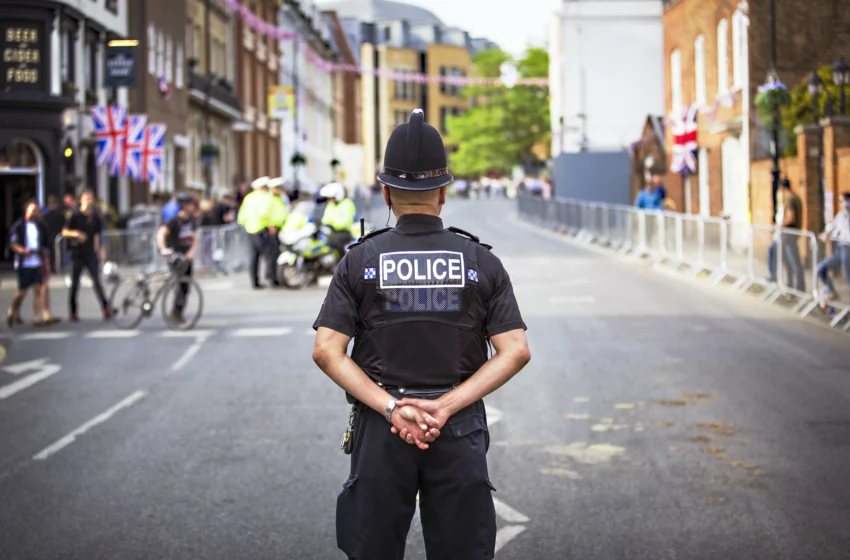
Adultification Bias: the effect of racial prejudice on policing and beyond
A fifteen-year-old black schoolgirl, known only as Child Q, was strip-searched by police officers in 2020. The police were called because a teacher reported that the girl smelled of cannabis, but no drugs were found; the shocking news has hit the headlines in recent weeks. The disturbing event, which took place in an East London school, has triggered widespread condemnation due to its horrific details.
The young girl was removed from an exam, forced to strip naked whilst menstruating and told to remove her sanitary pad. The police officers subsequently told her to reuse the pad without allowing her to use the bathroom to clean up.
Following the event, a council report was carried out and concluded that racism was likely to have been an influencing factor. The mother of the girl stated, “Professionals treated her as an adult. She was searched as an adult. Is it because of her skin?” This question is an understandable one, and adultification bias is likely to be a key factor in this horrific incident.
Adultification bias can be understood as a form of racial prejudice in which children of minority groups, particularly black children, are viewed as being more mature or older than they really are. This form of bias is particularly dangerous when it influences authority figures, such as the police. In this instance the young girl was treated as an adult, there was no safeguarding in place, and there were no other adults present in the room. The girl’s mother has described how this despicable incident has transformed her “happy-go-lucky girl [in]to a timid recluse that hardly speaks”.
Sadly, adultification bias towards black children and teenagers is not a rare occurrence. In 2017 a report was published titled ‘Listening to Black Women and Girls: Lived Experiences of Adultification Bias’. The report found that adults perceive black girls to be more mature and less innocent than their white peers from as young as five years old. Even more disturbing, the report suggested that adults have less empathy for young black girls than for their white peers, whom they view as more innocent, more in need of comfort and more in need of protection.
Negative stereotypes of black women, the report suggests, are a strong influencing factor in the adultification of black girls. These stereotypes of the angry, aggressive black woman and of the hypersexualised black woman often emerge from portrayals of black women in the media, and have become dominant cultural paradigms. These stereotypes become particularly dangerous when they influence the treatment of children by adults in positions of power, such as teachers or, more strikingly in the case of Child Q, by law enforcement. The case of Child Q sadly exemplifies that when professionals perceive children as more adult, their wellbeing, safeguarding needs and rights as children can be diminished or overlooked.
Jahnine Davis, the director and co-founder of Listen-Up, a company established to amplify lesser heard voices in child safeguarding, spoke on the case of Child Q. She discussed how events like the treatment of Child Q are sensationalised by the media and cause short-lived responses of anger. Instead, she insists that these cases should open up larger discussions of the ‘everyday racist, racialised experiences black children have to navigate and encounter across all systems and services’. Further, she expresses how we must assess, societally, the foundations of adultification bias which affect young boys just as much as girls.
We only have to look as far as the disparity in the policing of drug offences in the UK to see how black males experience prejudice in the criminal justice system. Much research has shown that the policing and prosecution of drug possession in the UK is excessively focussed on black and minority groups. If young black males are being stopped and searched, arrested and prosecuted disproportionately more than their white counterparts, we must consider where adultification bias is coming into play. Young black males, Davis states, are stereotyped as deviants and gang members. These stereotypes, she stresses, dehumanise black children and drastically impact safeguarding duties.
In the aftermath of the 2020 Black Lives Matter protests it is disheartening to be reminded that systemic and institutional racism is still prevalent in the United Kingdom today. Labour MP Diane Abbott writes of how dispiriting this story is, noting that after “decades of marching, demonstrating [and] campaigning, police practice is as bad as ever”. The publication of this report is a stark reminder that there is much still to be done to tackle racism in the United Kingdom. This case sadly indicates that black children in the UK are not safe from mistreatment by the police, even at school, a supposed place of safety.
Header Photo Credit: Unsplash

